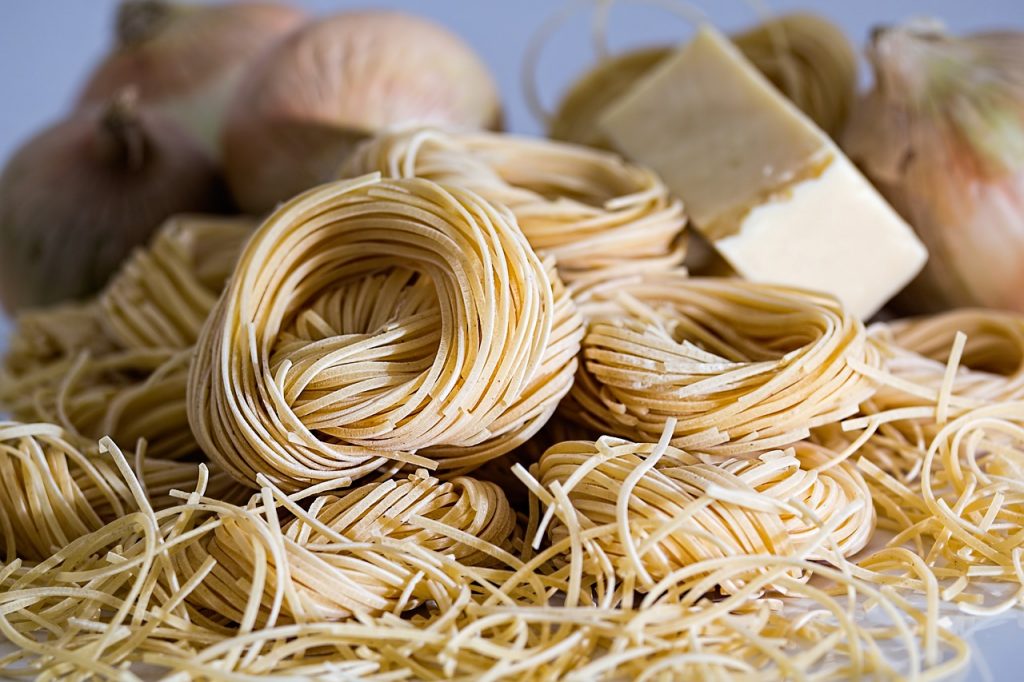
Written by Yasmin Craig
Carbohydrates are your body’s main source of energy, so they shouldn’t be forgot or demonised. They help fuel your brain, kidneys, central nervous system among many other bodily functions. For example fiber is a type of carbohydrate that aids the digestion of food. However, in the age of social media and increasing unqualified influencers providing damaging ‘diet’ advice carbohydrates have unfairly become a villain. Below we will explore how untrue some of these myths really are.
Myth 1 – Carbs make you fat
This is not true. Over consumption of calories for a long period of time is what will lead to weight gain. It is true that cutting out carbohydrates can cause initial weight loss, but this is not sustainable and weight loss will stop after a period of time. This is due to the body first using up its glycogen stores to provide energy since no carbs are being consumed. This accounts for the initial drop in weight as glycogen is stored in a hydrated form, so when converted back to glucose this water weight will be lost.
Myth 2 – Carbs make you tired
Some individuals may complain of feeling tired after eating a big bowl of pasta full of carbs, also known as a ‘carb-coma’. The scientific term for this feeling is ‘post prandial somnolence’. This is simply due to more energy being directed to your gut to aid digestion, making you feel tired. When people cut out carbs they report feeling less tired after meals. This typically has nothing to do with carbohydrates specifically but the reduction in total energy of the meal. Thus resulting in less post prandial somnolence!
Myth 3 – Eating carbs stops you burning fat
It could be correct that when consuming carbs there is a temporary halt in fat burning. However this is only because you have carbohydrates available that need to be burned as carbohydrates are our bodies first choice when it comes to energy sources. Carbs shouldn’t be replaced with dietary fat as theses fats are more likely to be stored as body fat than carbohydrates are. When overconsuming calories fat will be stored first and carbs will be burned.
Myth 4 – Low carb diets are healthier for you
Cutting out carbs may provide initial weight loss as discussed in myth 1, however this method of weight loss comes alongside potentially damaging side effects. Individuals following a low carb diet had increased risk of coronary heart disease, stroke and premature death. These findings were discovered in several scientific studies including a meta-analysis of seven prospective cohort studies where a 15%, 13% and 8% increased risk in total, cardiovascular and cancer mortality with low carb diets.
Myth 5 – Carbs aren’t good for your health
This is so far from the truth its crazy. Carbs are good and extremely vital for our health in ways you might not expect. Complex carbs, such as brown rice, quinoa and potatoes play an essential role in increasing heart health. They also play a role in managing diabetes, as they take longer to be broken down within the body providing a steady release of energy putting less pressure on insulin production. Also, fiber found in carbs has a positive effect on cholesterol, and helps regulate blood sugar and energy levels throughout the day. These are only some benefits of including carbs in your diet.
In summary, carbohydrates shouldn’t be excluded from the diet on the basis of diet culture and unqualified ‘nutritionists’ advice. Always talk to a registered nutritionist or dietician if you have any questions about your diet!
You can get in touch with Yazmin at…
Instagram – @yncnutrition
Email – yncnutrition@gmail.com
Sources
https://www.ncbi.nlm.nih.gov/pmc/articles/PMC5996878/
https://www.sciencedaily.com/releases/2018/08/180828085922.htm
https://www.nhs.uk/live-well/healthy-weight/why-we-need-to-eat-carbs/
https://www.ncbi.nlm.nih.gov/pmc/articles/PMC5793267/
